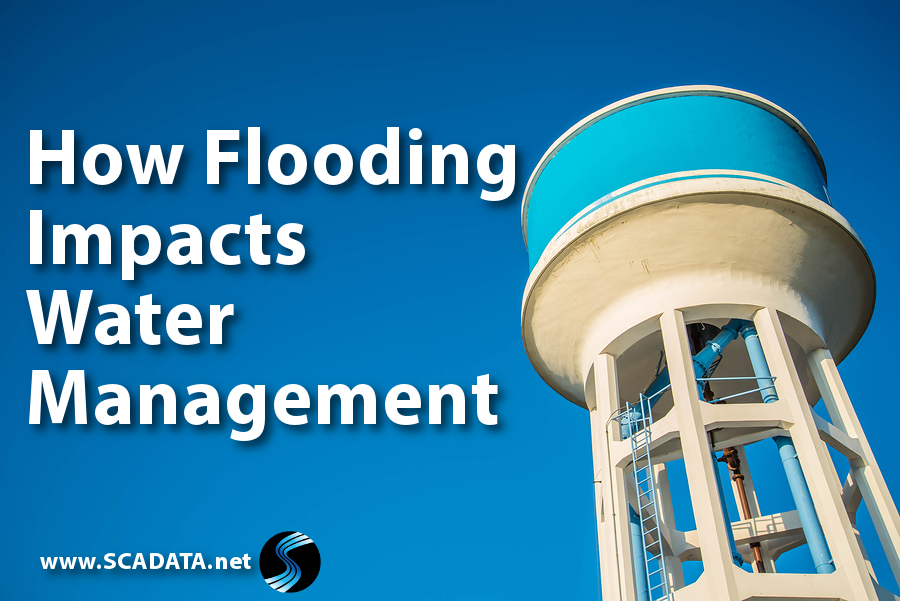An abundance of rain in the spring season can create issues for our drinking supply and sanitation. Flooding is one of the most common natural hazards in the United States. According to USA Today, 2016 was a record high for flooding,causing billions of dollars in damage. With high levels of water, it seems that water quality wouldn�t be an issue. But, in many areas, this isn�t the case. High levels of rain can cause issues with contamination of drinking water and impedes the effective management of our water supply.
Water management requires a balance of treatment and separation to keep drinking water secluded from contaminants and water used for sanitation purposes. When flooding occurs, water that is meant for drinking could suddenly be overcome by runoff and any contaminants from the local area.
In addition, flooding is not only an issue in spring months. High waters can occur for a variety of reasons from snow melting to high rains, and even infrastructure and levee failures. It�s important to understand the strain that is put on water utilities when high level water events are imminent.
Managing flooding in water utilities
When flooding occurs, operators are faced with the tough job of maintaining equipment and ensuring that all operations stay functional with high levels of water and possible power outages. When plants experience high-level events, it is common for water to become contaminated.
Without the necessary measures in place, water can become contaminated during flooding if:
- Backflow occurs with finished water.
- Debris or other contaminants fall into drains or finished water.
- Finished water isn�t properly protected from flood waters.
To help prevent this from occurring, the EPA has developed a flood mitigation and resilience plan to help water utilities prepare for flooding. The four-step process includes these steps:
- Evaluating the potential threats for flooding: This involves investigating flood maps and examining past events of flooding and the effects of the event. Integration of automation or SCADA can help operators examine past events within a system.
- Identifying vulnerabilities and the consequences associated with weak spots: This means evaluating current equipment and identifying key assets. Plants managers are faced with these questions:
- What do you need to keep your plant functioning?
- How much would it cost to replace equipment?
- How much would it cost to reinforce infrastructure and raise the equipment above flood level?
- Do you have generators in case you lose power?
- Find out options for prevention: For this, operators need to figure out what it would take to instill preventative measures and how much money it would involve to institute those measures.
- Develop a plan for flood preparedness implementation: For this step, water management staff investigates how to execute a plan. They must evaluate:
- What resources are necessary.
- How much money is needed.
- What outside contractors or resources will be required.
In addition to this planning, managers also have to plan for the worst. This means keeping the safe drinking water supply at its max in case of a problem. Plant managers are also frequently faced with a shortage of money or resources and lack of support from governing bodies to implement necessary preventative measures.
Keeping our drinking water safe is no simple task.
How automation helps protect water during flooding
High level events are not much fun for plant operators. However, automation greatly helps manage the problems that are associated with flooding. SCADA allows plant managers to set alarms and receive remote alerts when something occurs. Using automation, plant managers can set notifications when water reaches a certain level. This gives plant managers the capability of knowing before flooding occurs so that appropriate measures can be taken.
Alarms can be set for any desired event. With automation, plant managers can be informed if levels are high or low, if pumps are malfunctioning, if equipment isn�t responding, and any other specified event.
If you aren�t sure what kind of benefit you can get from SCADA, schedule a free demo today!




